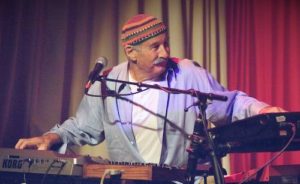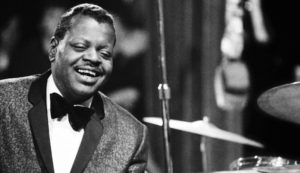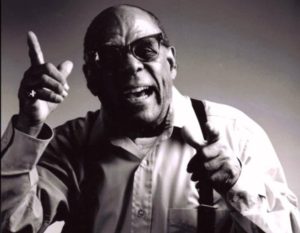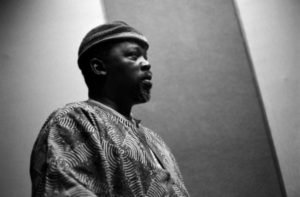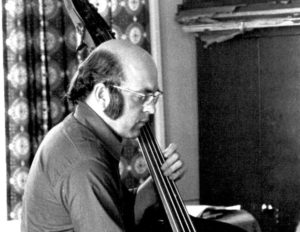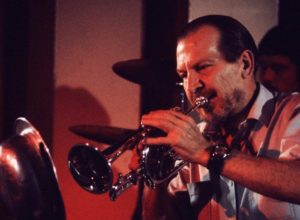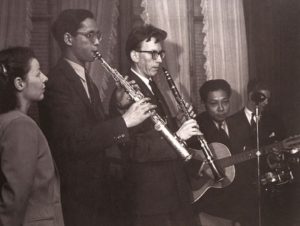Paquito D’Rivera
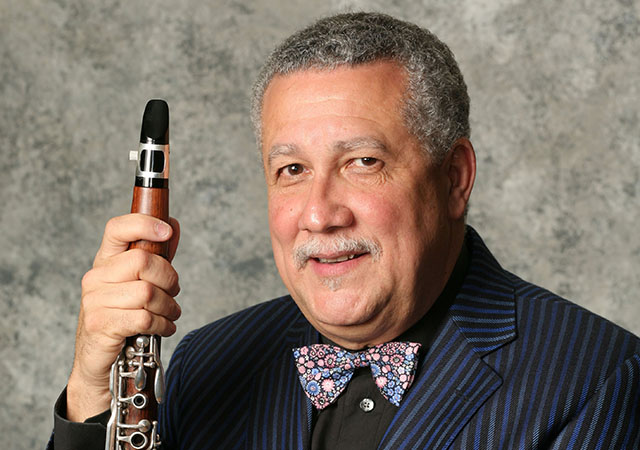
Saxophonist and clarinettist Paquito D’Rivera (born 1948) has worked in classical, jazz and latin settings with equal facility. He has been one of Cuba’s leading jazz figures for almost five decades. He was born in Havana and was introduced to music at an early age. His father was a classical saxophonist, and introduced D’Rivera to classical music, Duke Ellington and Benny Goodman, and giving him his first saxophone lessons from the age of 5. He would accompany his father to music venues like the Tropicana, where D’Rivera senior would sell musical instruments, and got to hear the Nat ‘King’ Cole Trio as well as leading Cuban bands. At 12, he attended the Havana Conservatory of Music, where he met pianist Chucho Valdés. While still a teenager he appeared as a featured soloist with the Cuban National Symphony.
In Castro’s Cuba of the 1960s jazz, as an artform that came out of USA, was was not approved of. As a result, the group D’Rivera founded in 1967 with Valdés and trumpeter Arturo Sandoval, was given the deliberately misleading name of Orquesta Cubana de Música Moderna. In 1973, Valdés, Sandoval and D’Rivera would go on to form the seminal Cuban band, Irakere. The group fused jazz, rock, classical and Cuban music. Their debut self-titled album in 1979 brought instant international fame and Grammy award. D’Rivera though defected from Cuba in 1981, seeking asylum in the American Embassy in Spain while on tour. His first two albums, Blowin (1981) and Mariel (1982) for Columbia featuring Hilton Ruiz on piano, were well received. Through the 1980s, he continued to release albums as a leader on Columbia, while also appearing as a sideman with Mario Bauza, Astor Piazzolla, McCoy Tyner and on Claudio Roditi‘s debut album Red on Red (1984).
In 1989, D’Rivera was invited to join Dizzy Gillespie’s United Nations Orchestra – a band that included former colleagues Arturo Sandoval and Claudio Roditi, as well as James Moody, Slide Hampton, Steve Turre, Airto Moreira and Flora Purim. The band toured internationally and raised D’Rivera’s profile still further. He toured with Gillespie’s quintet in 1991, and also worked with Tito Puente (1993), Gloria Estefan (1993-4), Lalo Schifrin (1994-8), Bebo Valdes (1995-2009), Herbie Mann (1997), Alex Acuña (2002), among countless others. His 1996 album Portraits Of Cuba won him his second (of twelve) Grammy Awards. D’Rivera enjoyed a fruitful collaboration with Classical cellist Yo Yo Ma in the 2000s. He has picked up numerous awards, among them being named an NEA Jazz Master in 2005, and a Living Jazz Legend by the Kennedy Center in 2007.
Key Recordings:
Irakere (Columbia 1979) with Irakere
Mariel (Columbia 1982)
Portraits Of Cuba (Chesky 1996)
